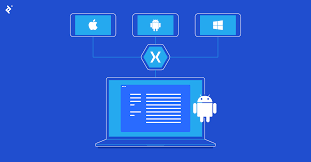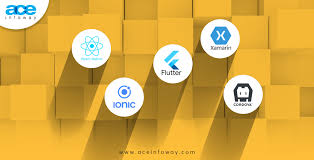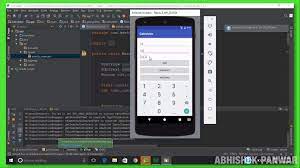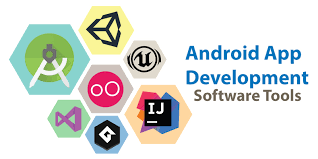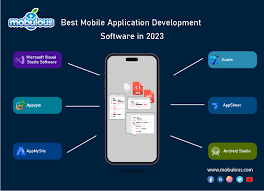Harnessing the Power of C++ in Mobile App Development
The Power of C++ in Mobile App Development
When it comes to mobile app development, C++ is a versatile and powerful programming language that offers a wide range of benefits. While languages like Java and Swift are popular choices for mobile app development, C++ has its own unique advantages that make it a compelling option for developers.
Performance and Efficiency
One of the key strengths of C++ is its performance capabilities. C++ is a high-performance language that allows developers to create fast and efficient mobile apps. This is particularly important for apps that require complex calculations, real-time processing, or high-speed graphics rendering.
Cross-Platform Compatibility
C++ is a portable language, meaning that code written in C++ can be easily adapted to run on multiple platforms. This makes it an ideal choice for developers looking to create apps that can run on both Android and iOS devices without having to rewrite the code from scratch.
Access to Low-Level Features
With C++, developers have access to low-level features of the device’s hardware, allowing for greater control and optimization of the app’s performance. This level of control is especially beneficial for gaming apps or apps that require direct interaction with hardware components.
Integration with Existing Codebases
C++ can be seamlessly integrated with existing codebases written in other languages like Java or Objective-C. This makes it easier for developers to incorporate C++ components into their mobile apps without having to rebuild everything from scratch.
Conclusion
In conclusion, C++ offers a powerful set of tools and capabilities for mobile app development. Its performance, cross-platform compatibility, access to low-level features, and ease of integration make it a valuable choice for developers looking to create high-quality mobile apps.
8 Essential Tips for Successful C++ Mobile App Development
- Choose the right mobile development framework that supports C++ such as Qt or Xamarin.
- Optimize your code for mobile devices to ensure smooth performance.
- Utilize platform-specific features and APIs to enhance user experience.
- Implement responsive design principles for different screen sizes and orientations.
- Pay attention to memory management to prevent memory leaks in your C++ code.
- Use debugging tools and techniques specific to mobile development for efficient troubleshooting.
- Test your app thoroughly on various mobile devices to ensure compatibility and functionality.
- Stay updated with the latest trends and best practices in C++ mobile app development.
Choose the right mobile development framework that supports C++ such as Qt or Xamarin.
When embarking on C++ mobile app development, it is crucial to select the appropriate mobile development framework that fully supports C++. Frameworks like Qt and Xamarin are excellent choices as they provide robust support for C++ programming, enabling developers to leverage the language’s capabilities effectively. By opting for a framework that is compatible with C++, developers can streamline the app development process, enhance cross-platform compatibility, and maximize the performance of their mobile applications. Making an informed decision on the mobile development framework can significantly impact the success and efficiency of C++ mobile app projects.
Optimize your code for mobile devices to ensure smooth performance.
Optimizing your code for mobile devices is crucial in C++ mobile app development to guarantee smooth performance. By fine-tuning your code to be efficient and resource-friendly, you can enhance the overall user experience and ensure that your app runs seamlessly on various mobile devices. Strategies such as minimizing memory usage, optimizing algorithms, and reducing unnecessary computations can significantly improve the performance of your app, allowing users to enjoy a fast and responsive application on their smartphones or tablets.
Utilize platform-specific features and APIs to enhance user experience.
To enhance the user experience in C++ mobile app development, it is crucial to leverage platform-specific features and APIs. By utilizing these resources tailored to each operating system, developers can tap into unique functionalities that enhance the app’s performance and user engagement. Whether it’s integrating native UI components, leveraging device sensors, or optimizing for specific platform behaviors, incorporating platform-specific features can elevate the overall user experience and make the app more intuitive and responsive for users on different devices.
Implement responsive design principles for different screen sizes and orientations.
When developing mobile apps using C++, it is essential to implement responsive design principles to ensure optimal user experience across various screen sizes and orientations. By incorporating responsive design techniques, such as fluid layouts and media queries, developers can create apps that adapt seamlessly to different screen dimensions and device orientations. This approach not only enhances usability but also improves the overall visual appeal of the app, making it more engaging for users on a wide range of mobile devices.
Pay attention to memory management to prevent memory leaks in your C++ code.
Proper memory management is crucial in C++ mobile app development to avoid memory leaks that can lead to performance issues and app crashes. By paying close attention to memory allocation and deallocation, developers can ensure that their code efficiently utilizes memory resources and prevents potential vulnerabilities. Implementing smart pointers, using RAII (Resource Acquisition Is Initialization) principles, and regularly testing for memory leaks are essential practices to maintain the stability and reliability of C++ mobile apps.
Use debugging tools and techniques specific to mobile development for efficient troubleshooting.
When developing mobile apps using C++, it is essential to utilize debugging tools and techniques tailored to mobile development for efficient troubleshooting. These specialized tools enable developers to pinpoint and resolve issues specific to mobile platforms, such as memory management, performance optimization, and device compatibility. By leveraging these debugging resources, developers can streamline the troubleshooting process, identify bugs quickly, and ensure the overall stability and performance of their C++ mobile apps.
Test your app thoroughly on various mobile devices to ensure compatibility and functionality.
To ensure the compatibility and functionality of your C++ mobile app, it is crucial to thoroughly test it on a variety of mobile devices. Testing on different devices helps identify any potential issues related to screen sizes, resolutions, operating systems, and hardware specifications. By conducting comprehensive testing, developers can ensure that their app performs seamlessly across a wide range of devices, providing a consistent user experience and maximizing its reach in the mobile market.
Stay updated with the latest trends and best practices in C++ mobile app development.
Staying updated with the latest trends and best practices in C++ mobile app development is crucial for developers aiming to create cutting-edge and efficient applications. By keeping abreast of new advancements and industry standards, developers can leverage innovative techniques and tools to enhance the performance, user experience, and overall quality of their mobile apps. Continuous learning and adaptation to emerging trends ensure that developers remain competitive in the ever-evolving landscape of mobile app development, ultimately leading to the creation of successful and impactful applications.




